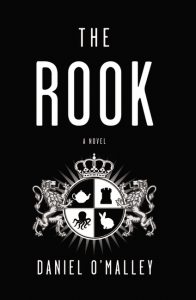Seanan McGuire: Across the digital divide.
Author Seanan McGuire wrote a post that takes a different look at the e-revolution in publishing than I’ve heard before: she looks at how it makes reading an exclusionary luxury. I’ve thought about this sort of thing before myself. (Probably because ever since I moved out of my parents’ home I’ve been a few steps behind every technological advance—except in the case of required professional software like Adobe Creative Suite products and Word.)
In response to the argument that even those who don’t have an e-reader have a computer (something I have heard), I know people who can’t afford to have a home computer either. Those people would have to rely on places with free computers, like libraries, but library computers aren’t the sort you can sit at for hours and hours because they’re in high demand (not to mention the decrease in library funding). The issue of making electronic reading as democratic as print reading is one that hasn’t been satisfactorily addressed for me. The ease of moving a print book from one owner to another is one reason I’ve been happy to keep buying print books even though I have an e-reader.
Thomas Baekdal: Infinite Choices and a World Abundance vs. Supply and Demand.
Thomas Baekdal explains why supply-and-demand rules do not apply to the abundance of ebooks. This is a follow-up to his article called “The Myth of the 99 Cent Book.” In both articles he emphasizes why 99 cents is not a sustainable price for books to trend toward and why it’s a bad way to go. He suggests that you stop focusing on making your book cheap enough that people won’t fight about having to give you money; instead, make your content into someone of sufficient quality that people will be clambering to give you a fair price.
Baekdal’s reasoning is why I’m so happy with publishers and authors who are dedicated to making their ebooks into quality products instead of subsidiary aftereffects (Pyr, for example). When you put out a quality story and you present it in a quality way, with attention to detail and quality, you can maintain a sustainable price point and readers will pay it willingly because they know it’s worth the money.
Writers Beware: PUBSLUSH Press
There have been a lot of crowdfunding projects cropping up across the internet, and one of the newest is PUBSLUSH Press (they’re technically still in beta). Writers Beware posted a critique of PS’s publishing agreement and noted some things to be aware of. These crowdfunding organizations are another option and venue for writers, but it’s best to go into anything—from traditional publishing to doing everything yourself—with your eyes wide open to the opportunities, risks, and sticky bits. PUBSLUSH has quite a few sticky bits.
 Daniel O’Malley: Chapters 1 & 2 of The Rook
Daniel O’Malley: Chapters 1 & 2 of The Rook
The Rook is a book that piqued my interest at some point in the past, though I’m not quite sure when or where. (I may have heard about it through Publishers Weekly, but I’m not sure because I don’t record where I find things when I put them on my “to watch” list.) There is a two-chapter teaser for the fantasy novel available now. Yes, I’ve read the teaser. After I read it I was tempted to pre-order the novel (which doesn’t come out until January 2012). I haven’t because my birthday and Christmas happen between now and its release, and I tend to get wonderful gift cards to bookish places on one (or both) of those occasions. That and I still haven’t finished the stack of books next to my desk and I’ve cut off my book spending until it’s been devoured. And The Hum and the Shiver comes out next week, and that’s another book I’ve been watching.



